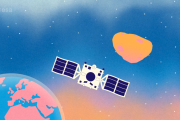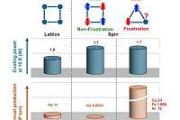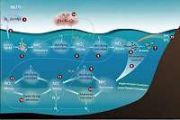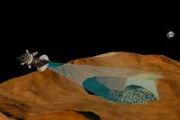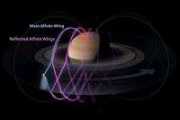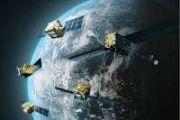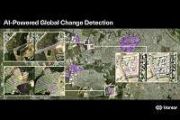
Copernical Team
Epson bolsters space robotics through GITAI investment
 In a move emblematic of the burgeoning space industry's trajectory, Epson has announced a fresh investment into GITAI, a startup focused on creating versatile robotic solutions for space-based applications. GITAI's mission centers around supplying safe and cost-effective labor for myriad tasks in space, ranging from operations within space stations orbiting Earth to more ambitious endeavors on t
In a move emblematic of the burgeoning space industry's trajectory, Epson has announced a fresh investment into GITAI, a startup focused on creating versatile robotic solutions for space-based applications. GITAI's mission centers around supplying safe and cost-effective labor for myriad tasks in space, ranging from operations within space stations orbiting Earth to more ambitious endeavors on t LeoLabs provides tracking support for ESA's historic assisted satellite reentry
 LeoLabs, the leading commercial provider of Space Traffic Management (STM) and Space Situational Awareness (SSA) services, today shared their support for the European Space Agency's (ESA) successful assisted reentry of Aeolus, an Earth observation satellite, over Antarctica on 28 July 2023.
This assisted reentry was considered the "first-of-its-kind" because the satellite, named Aeolus, wa
LeoLabs, the leading commercial provider of Space Traffic Management (STM) and Space Situational Awareness (SSA) services, today shared their support for the European Space Agency's (ESA) successful assisted reentry of Aeolus, an Earth observation satellite, over Antarctica on 28 July 2023.
This assisted reentry was considered the "first-of-its-kind" because the satellite, named Aeolus, wa Dark energy could be measured by studying the galaxy next door
 Researchers have found a new way to measure dark energy - the mysterious force that makes up more than two-thirds of the universe and is responsible for its accelerating expansion - in our own cosmic backyard.
The researchers, from the University of Cambridge, found that it may be possible to detect and measure dark energy by studying Andromeda, our galactic next-door neighbour that is on
Researchers have found a new way to measure dark energy - the mysterious force that makes up more than two-thirds of the universe and is responsible for its accelerating expansion - in our own cosmic backyard.
The researchers, from the University of Cambridge, found that it may be possible to detect and measure dark energy by studying Andromeda, our galactic next-door neighbour that is on Astronomers confirm Maisie's galaxy is among earliest ever observed
 Thanks to the James Webb Space Telescope, astronomers racing to find some of the earliest galaxies ever glimpsed have now confirmed that a galaxy first detected last summer is in fact among the earliest ever found. The findings are in the journal Nature.
Follow-up observations since first detection of Maisie's galaxy have revealed that it is from 390 million years after the Big Bang. Altho
Thanks to the James Webb Space Telescope, astronomers racing to find some of the earliest galaxies ever glimpsed have now confirmed that a galaxy first detected last summer is in fact among the earliest ever found. The findings are in the journal Nature.
Follow-up observations since first detection of Maisie's galaxy have revealed that it is from 390 million years after the Big Bang. Altho Seventeen years later satellite return home for first time
 On Aug. 12, 2023, NASA's STEREO-A spacecraft will pass between the Sun and Earth, marking the first Earth flyby of the nearly 17-year-old mission. The visit home brings a special chance for the spacecraft to collaborate with NASA missions near Earth and reveal new insights into our closest star.
The twin STEREO (Solar TErrestrial RElations Observatory) spacecraft launched on Oct. 25, 2006,
On Aug. 12, 2023, NASA's STEREO-A spacecraft will pass between the Sun and Earth, marking the first Earth flyby of the nearly 17-year-old mission. The visit home brings a special chance for the spacecraft to collaborate with NASA missions near Earth and reveal new insights into our closest star.
The twin STEREO (Solar TErrestrial RElations Observatory) spacecraft launched on Oct. 25, 2006, Monster waves as tall as three suns are crashing upon a colossal star
 An extreme star system is giving new meaning to the phrase "surf's up." The star system intrigued researchers because it is the most dramatic "heartbeat star" on record. Now new models have revealed that titanic waves, generated by tides, are repeatedly breaking on one of the stars in the system-the first time this phenomenon has ever been seen on a star.
Heartbeat stars are stars in close
An extreme star system is giving new meaning to the phrase "surf's up." The star system intrigued researchers because it is the most dramatic "heartbeat star" on record. Now new models have revealed that titanic waves, generated by tides, are repeatedly breaking on one of the stars in the system-the first time this phenomenon has ever been seen on a star.
Heartbeat stars are stars in close Rubin will detect an abundance of interstellar objects passing through solar system
 Many as-yet-undiscovered interstellar objects exist throughout our Milky Way Galaxy: comets and asteroids that have been ejected from their home star systems. Some of these objects pass through our Solar System, bringing valuable information about how planetary systems form and evolve. Currently, only two such interstellar visitors have been discovered: 1I/?Oumuamua and comet 2I/Borisov. Rubin's
Many as-yet-undiscovered interstellar objects exist throughout our Milky Way Galaxy: comets and asteroids that have been ejected from their home star systems. Some of these objects pass through our Solar System, bringing valuable information about how planetary systems form and evolve. Currently, only two such interstellar visitors have been discovered: 1I/?Oumuamua and comet 2I/Borisov. Rubin's SwRI micropatch algorithm improves ground-to-spacecraft software update efficiency
 Southwest Research Institute developed an algorithm to remotely update and repair spacecraft software using less time and data than conventional techniques. The tool not only improves the overall efficiency of satellite software transmissions but also can recover data from failed over-the-air updates and malicious cyberattacks. It works by identifying missing bytes and other errors before deploy
Southwest Research Institute developed an algorithm to remotely update and repair spacecraft software using less time and data than conventional techniques. The tool not only improves the overall efficiency of satellite software transmissions but also can recover data from failed over-the-air updates and malicious cyberattacks. It works by identifying missing bytes and other errors before deploy Communications achieved for NASA's 4 Starling CubeSats
 Mission managers have established command communications with all four of NASA's Starling CubeSats! The spacecraft are progressing through payload and propulsion tests, the final stage of a pre-operations checklist called commissioning.
The Starling spacecraft - which project team members nicknamed Blinky, Pinky, Inky, and Clyde - are part of an ambitious test to develop self-coordinating
Mission managers have established command communications with all four of NASA's Starling CubeSats! The spacecraft are progressing through payload and propulsion tests, the final stage of a pre-operations checklist called commissioning.
The Starling spacecraft - which project team members nicknamed Blinky, Pinky, Inky, and Clyde - are part of an ambitious test to develop self-coordinating Damage control: WVU researchers aim for the sky to track lethal space debris
 West Virginia University researchers are looking to protect space - and elements of everyday life on Earth - from debris down to the size of paint flakes barreling through space at speeds of more than 15,000 miles per hour.
A team led by Piyush Mehta, assistant professor of mechanical and aerospace engineering in the Benjamin M. Statler College of Engineering and Mineral Resources, has rec
West Virginia University researchers are looking to protect space - and elements of everyday life on Earth - from debris down to the size of paint flakes barreling through space at speeds of more than 15,000 miles per hour.
A team led by Piyush Mehta, assistant professor of mechanical and aerospace engineering in the Benjamin M. Statler College of Engineering and Mineral Resources, has rec 










